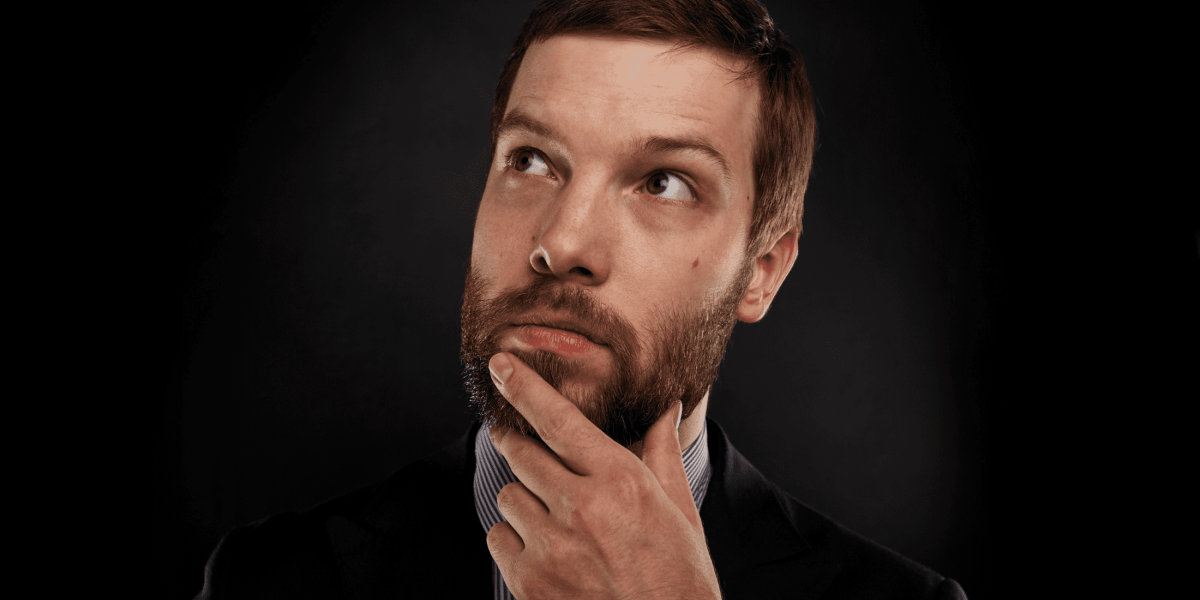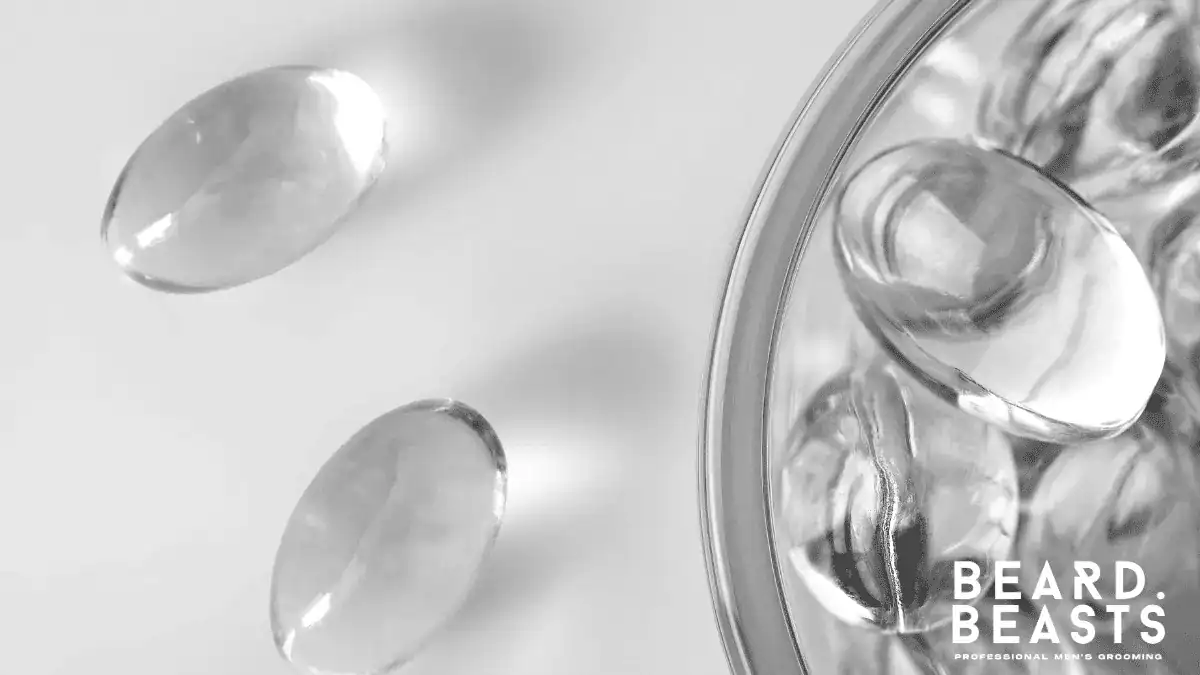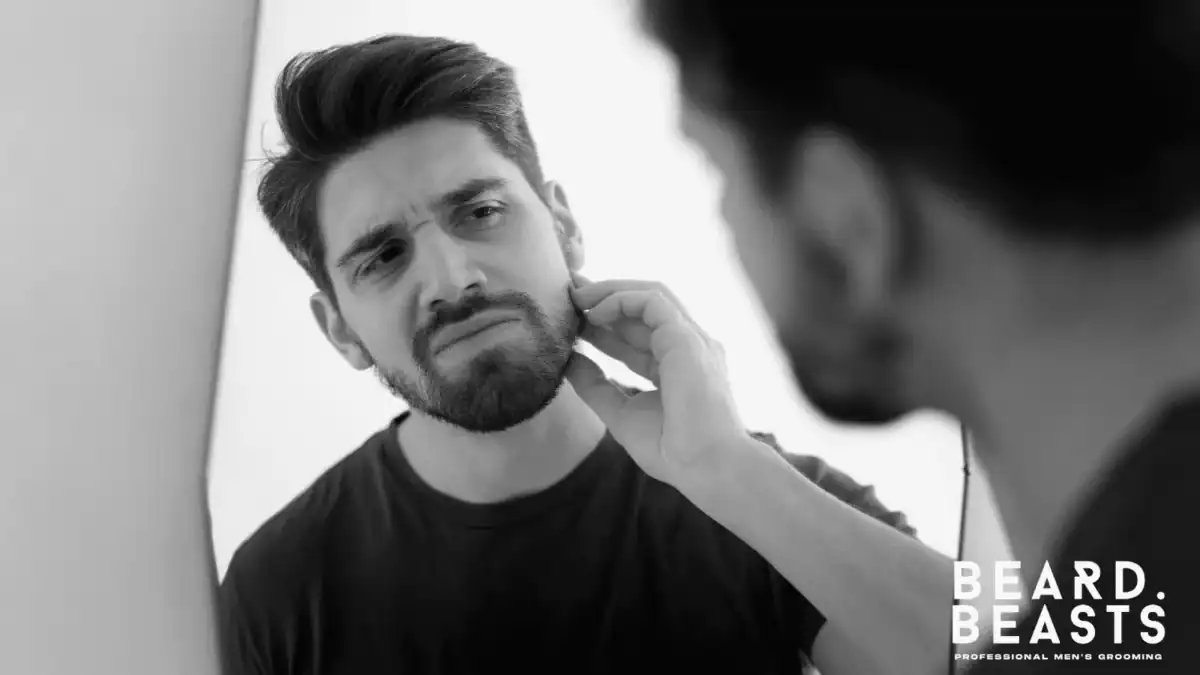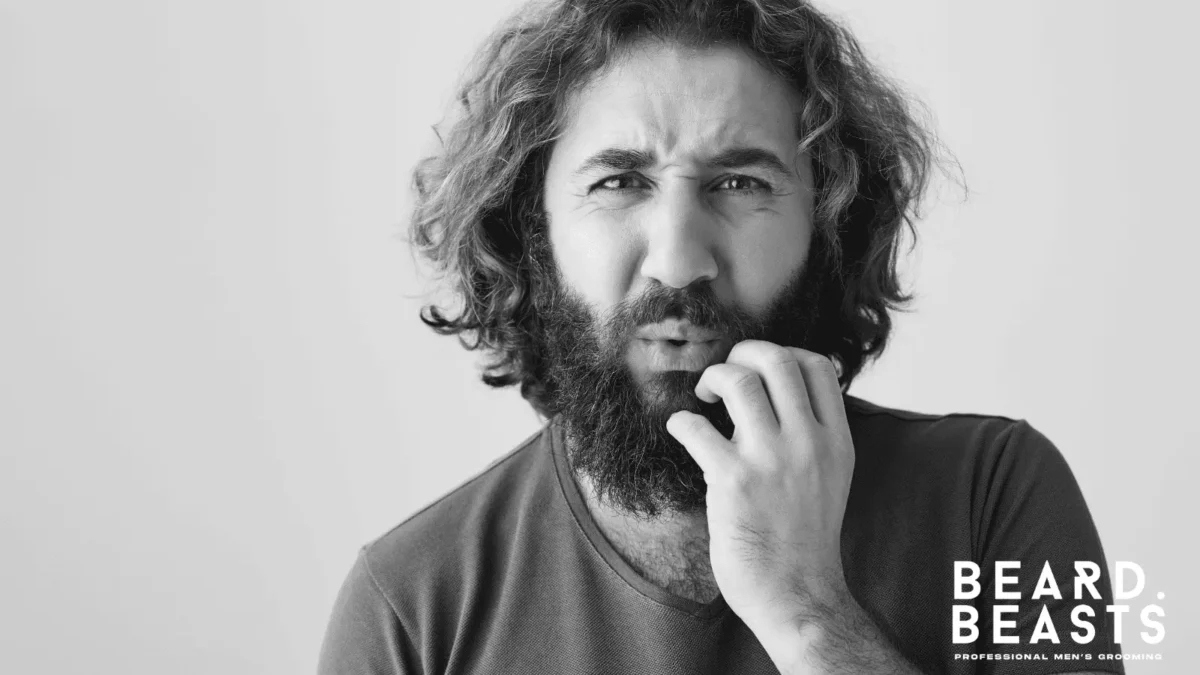If you’ve ever found yourself wondering, why did my beard stop growing? you’re not alone. Many men face this issue and seek answers. Understanding the reasons behind halted beard growth involves looking at factors like hormonal imbalances, genetics, lifestyle choices, and grooming habits.
In this article, we’ll explore the science of beard growth, debunk common myths, and offer practical tips to help you achieve a healthy, full beard. Whether you’re dealing with slow growth or want to improve your beard care routine, we have valuable insights and friendly advice to guide you.
The Science Behind Beard Growth
Understanding the science behind beard growth can provide some valuable insights into this question. Let’s dive into the fascinating world of beard growth and uncover the role of hormones and the hair growth cycle.
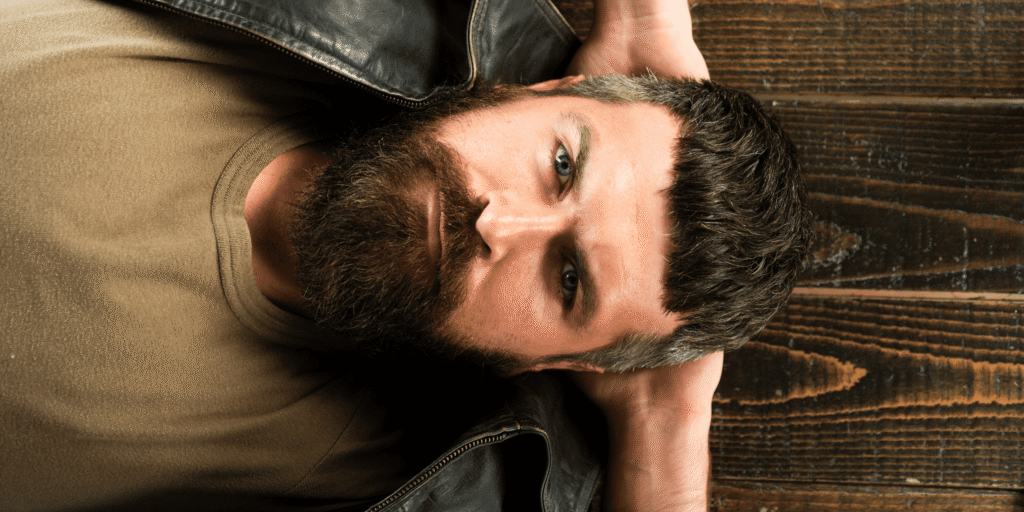
Hormones: The Key Players in Beard Growth
Testosterone and Dihydrotestosterone (DHT) are the two main hormones responsible for beard growth. Here’s how they work:
- Testosterone: This hormone is present in both men and women but is much higher in men. It helps to initiate beard growth by stimulating the hair follicles.
- DHT: A derivative of testosterone, DHT is even more powerful when it comes to facial hair. It binds to receptors in the hair follicles, promoting the growth of thicker, darker hairs.
In a nutshell, higher levels of testosterone and DHT typically lead to more robust beard growth. However, genetics play a significant role in how your body responds to these hormones.
The Hair Growth Cycle
Beard growth, like all hair growth, follows a natural cycle. Understanding this cycle can help you comprehend why your beard might not be growing as expected.
Anagen Phase (Growth Phase):
- This is the phase where your beard is actively growing.
- It can last from 2 to 6 years.
- About 85% of your beard hair is in this phase at any given time.
Catagen Phase (Transitional Phase):
- This is a short phase lasting about 2 to 3 weeks.
- The hair follicles shrink and growth slows down.
- It’s a transitional phase where the hair prepares to enter the next stage.
Telogen Phase (Resting Phase):
- This phase lasts for about 2 to 4 months.
- Hair growth stops, and old hairs fall out to make way for new ones.
- About 10-15% of your beard hair is in this phase.
So, if you’re wondering, why did my beard stop growing? it could simply be that your beard is in the telogen phase.
Patience is key, as it will eventually return to the anagen phase and start growing again.
Quick Facts
- Testosterone and DHT are essential for beard growth.
- The anagen phase is when your beard grows the most.
- The telogen phase might make it seem like your beard has stopped growing, but it’s just a part of the natural cycle.
Understanding these basics can help you maintain realistic expectations and patience with your beard growth journey. Remember, every beard is unique, and factors like genetics, health, and lifestyle all play a part in how your beard grows.
Common Reasons Your Beard May Stop Growing
If you’re curious about why your beard has stopped growing, there are several potential reasons behind this. Let’s explore some of the most common ones in a friendly and approachable way.
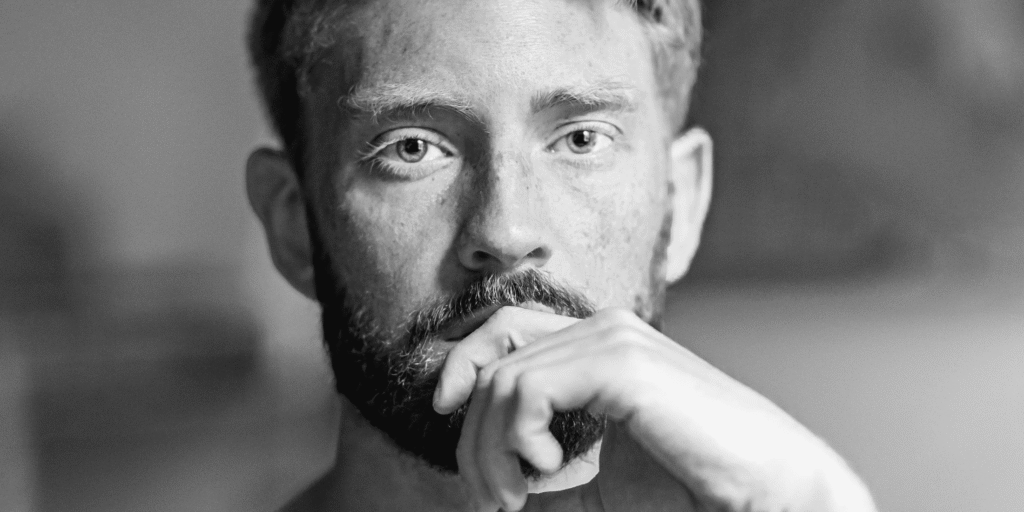
HORMONAL IMBALANCES: TESTOSTERONE AND DHT
Hormonal imbalances can play a significant role in beard growth. As already mentioned, Testosterone and DHT are crucial for facial hair development, but several factors can disrupt their levels:
- Low Testosterone Levels: Conditions like hypogonadism can lead to lower testosterone levels, affecting beard growth.
- Hormonal Disorders: Issues like thyroid problems can also impact hormone levels, including those vital for hair growth.
Key Fact: Balancing hormones through proper medical advice and lifestyle changes can often help in regaining beard growth.
AGE-RELATED CHANGES: THE CLOCK AND YOUR BEARD
As you age, you might notice changes in your beard growth patterns. Here’s how age can affect your beard:
- Youth and Early Adulthood: Beard growth typically peaks during your 20s and 30s.
- Middle Age and Beyond: Hormonal levels, including testosterone, naturally decline with age, which can slow down beard growth.
Quick Tip: Regular check-ups and maintaining a healthy lifestyle can help mitigate some age-related changes in beard growth.
GENETIC FACTORS: THE ROLE OF GENETICS IN BEARD DENSITY AND GROWTH
Your genes have a big say in your beard’s appearance. If you’re wondering, why did my beard stop growing? your genetics might hold the answer:
- Family Traits: Look at your family members. If they have thick beards, chances are you will too.
- Genetic Predisposition: Some men are genetically predisposed to have a patchy or a thin beard, regardless of their hormone levels.
Interesting Fact: Genetic factors are often the most influential determinant of beard density and growth patterns.
NUTRITIONAL DEFICIENCIES AFFECTING HAIR HEALTH
What you eat directly impacts your beard. Nutritional deficiencies can halt your beard growth. Here’s how nutrition plays a role:
- Vitamins and Minerals: Biotin, Vitamin D, Zinc, and Iron are essential for healthy hair growth.
- Balanced Diet: Consuming a diet rich in fruits, vegetables, lean proteins, and healthy fats supports overall hair health.
Nutrition Tip: Supplementing your diet with necessary vitamins and minerals can promote better beard growth.
THE IMPACT OF STRESS AND SLEEP ON BEARD GROWTH
Stress and lack of sleep can be major culprits in stopping your beard growth. Here’s why:
- Stress Hormones: High stress levels increase cortisol, which can negatively affect testosterone and DHT.
- Sleep Quality: Poor sleep disrupts the body’s repair processes, including hair growth cycles.
Relaxation Tip: Managing stress through techniques like meditation, exercise, and ensuring adequate sleep can improve your beard’s health.
Understanding why your beard may have stopped growing can help you take actionable steps to address the issue. Whether it’s hormonal imbalances, age-related changes, genetics, nutritional deficiencies, or lifestyle factors like stress and sleep, there are ways to manage and potentially improve your beard growth.
EXTERNAL FACTORS THAT MAY HINDER BEARD GROWTH
If you’re still curious about why your beard has stopped growing, external factors might also be playing a role. Let’s dive into some of the most common ones and how they might be affecting your beard.
SKINCARE AND BEARD PRODUCTS: HELPFUL OR HARMFUL?
The products you use on your beard can have a significant impact on its growth and health. Here’s what you need to know:
- Helpful Products: High-quality beard oils, balms, and shampoos can nourish the hair and skin, promoting growth.
- Ingredients to Look For: Argan oil, jojoba oil, shea butter, and vitamin E.
- Harmful Products: Some products can do more harm than good, especially those with harsh chemicals.
- Ingredients to Avoid: Sulfates, parabens, alcohol, and synthetic fragrances.
Quick Tip: Always read the labels and choose products that are specifically designed for beard care to avoid any potential harm.
ENVIRONMENTAL FACTORS: POLLUTION AND WEATHER CONDITIONS
The environment you live in can also affect your beard growth. Here are some factors to consider:
- Pollution: Air pollution can clog pores and damage hair follicles, leading to poor beard growth.
- Protective Measures: Regularly wash your face and beard to remove pollutants.
- Weather Conditions: Extreme weather, whether hot or cold, can impact your beard.
- Hot Weather: Can cause dryness and breakage. Use hydrating products.
- Cold Weather: Can lead to dry, brittle hair. Use heavier beard balms and oils to lock in moisture.
Interesting Fact: Keeping your beard clean and well-moisturized can help mitigate the negative effects of environmental factors.
BAD GROOMING HABITS: OVER-TRIMMING AND IMPROPER CARE
How you groom your beard can significantly impact its growth. Here’s what to avoid and what to do instead:
- Over-Trimming: Trimming too often or too much can hinder your beard’s ability to grow longer.
- Best Practice: Trim sparingly and only when necessary to maintain shape.
- Improper Care: Neglecting proper care can lead to issues like beard split ends and ingrown beard hairs.
- Proper Care Routine:
- Cleanse: Use a gentle beard shampoo a few times a week.
- Moisturize: Apply beard oil daily to keep hair and skin hydrated.
- Brush: Use a beard brush to distribute oils and prevent tangles.
- Proper Care Routine:
Pro Tip: Establish a regular grooming routine that includes proper cleaning, moisturizing, and trimming to support healthy beard growth.
External factors such as skincare products, environmental conditions, and grooming habits can significantly influence your beard’s growth. By paying attention to these aspects and making informed choices, you can address the question, why did my beard stop growing? and take steps to promote a healthier, fuller beard.
HEALTH CONDITIONS THAT CAN AFFECT BEARD GROWTH
If you’re still pondering, why did my beard stop growing? health conditions might be a factor. Let’s look into some common health issues that can impact beard growth.
ALOPECIA BARBAE: AN OVERVIEW
Alopecia barbae is a condition where the immune system mistakenly attacks hair follicles, leading to hair loss in the beard area. Here’s what you need to know:
- Symptoms: Round, smooth, bald patches in the beard.
- Causes: It’s an autoimmune condition with no exact known cause, but stress and genetics may play a role.
- Treatment Options:
- Corticosteroids: Often prescribed to reduce inflammation and suppress the immune response.
- Topical Treatments: Minoxidil can sometimes help stimulate hair growth.
Important Note: If you notice unusual bald patches in your beard, consult a dermatologist for a proper diagnosis and treatment plan.
THYROID DISORDERS AND BEARD GROWTH
Thyroid disorders can significantly impact hair growth, including your beard. The thyroid gland produces hormones that regulate metabolism, which in turn affects hair growth.
- Hypothyroidism: When the thyroid is underactive, it can lead to thinning hair and slower beard growth.
- Symptoms: Fatigue, weight gain, cold intolerance, thinning hair.
- Management: Thyroid hormone replacement therapy and regular monitoring.
- Hyperthyroidism: An overactive thyroid can also affect hair growth, though it’s less common.
- Symptoms: Weight loss, increased heart rate, anxiety, hair thinning.
- Management: Medications, radioactive iodine treatment, or surgery.
Health Tip: Regular check-ups and managing thyroid health through medication and lifestyle adjustments can help maintain healthy beard growth.
AUTOIMMUNE CONDITIONS AND THEIR IMPACT ON HAIR
Autoimmune conditions can cause the body’s immune system to attack its own cells, including hair follicles. Here’s how they can impact your beard:
- Common Autoimmune Conditions:
- Lupus: Can lead to hair loss, including in the beard area.
- Rheumatoid Arthritis: Inflammatory condition that can indirectly affect hair health.
- Impact on Beard Growth:
- Inflammation: Chronic inflammation can damage hair follicles.
- Treatment: Immunosuppressive medications and lifestyle changes to manage the condition.
Quick Fact: Maintaining overall health and managing autoimmune conditions effectively can improve the chances of healthy beard growth.
Understanding the health conditions that can affect beard growth is essential in addressing the question, Why did my beard stop growing? Conditions like alopecia barbae, thyroid disorders, and autoimmune diseases can all play a role.
By seeking proper medical advice and managing these conditions, you can take steps towards healthier beard growth. Always remember, a healthy body often leads to a healthier beard.
MYTHS VS. FACTS ABOUT BEARD GROWTH
Beard growth is a topic surrounded by many myths and misconceptions. To help you navigate through the noise and get clear answers to your question, “Why did my beard stop growing?” let’s debunk some common myths and highlight the facts.
SHAVING MAKES YOUR BEARD GROW BACK THICKER
- Fact: Shaving does not affect the thickness or growth rate of your beard. When hair grows back after shaving, it may appear thicker due to the blunt tip of the cut hair, but in reality, shaving has no impact on the density or growth speed of your beard.
ALL MEN CAN GROW A FULL BEARD
- Fact: Genetics play a crucial role in determining your beard growth potential. Not all men can grow a full beard due to their genetic makeup. If you’re asking, why did my beard stop growing? it might simply be down to your genetic predisposition.
BEARD GROWTH OILS WILL GUARANTEE A THICKER BEARD
- Fact: While beard oils can improve the health and appearance of your beard by moisturizing and nourishing the hair and skin, they cannot change your genetic potential for beard growth. They can support healthy growth but won’t create new hair follicles.
DIET DOESN’T AFFECT BEARD GROWTH
- Fact: Nutrition plays a significant role in hair health, including your beard. A diet rich in vitamins and minerals like Biotin, Vitamin D, Zinc, and Iron can promote better hair growth. Poor nutrition can lead to deficiencies that hinder beard growth.
STRESS HAS NO IMPACT ON BEARD GROWTH
- Fact: Stress can significantly impact your beard growth. High levels of stress increase cortisol, which can disrupt the hair growth cycle and lead to hair loss. Managing stress through relaxation techniques, exercise, and proper sleep can positively affect your beard.
BEARD GROWTH IS UNRELATED TO OVERALL HEALTH
- Fact: Your overall health directly impacts your beard growth. Conditions like thyroid disorders, autoimmune diseases, and hormonal imbalances can all affect how your beard grows. Maintaining a healthy lifestyle can contribute to better beard growth.
ONLY OLDER MEN CAN GROW BEARDS
- Fact: Beard growth varies greatly among individuals. While some men may start growing a beard in their late teens, others might not see significant growth until their late twenties or even thirties. Age is just one factor; genetics and hormones also play significant roles.
Navigating the myths and facts about beard growth can help you understand the true reasons behind your beard’s behavior.
By debunking common myths and focusing on what truly affects beard growth, you can make informed decisions and take steps to support a healthy, flourishing beard.
TIPS AND TRICKS TO PROMOTE HEALTHY BEARD GROWTH
So, you’ve been asking the question, why did my beard stop growing? and now you’re armed with knowledge about potential causes. But what can you do to encourage your beard to grow thicker and healthier?
Here are some friendly tips and tricks to help you out.
1. MAINTAIN A HEALTHY DIET
Your beard needs the right nutrients to thrive. Here’s what you should focus on:
- Protein: Hair is primarily made of protein, so make sure you’re getting enough. Foods like eggs, chicken, and legumes are great sources.
- Vitamins and Minerals:
- Biotin: Found in eggs, nuts, and seeds.
- Vitamin D: Get some sun or eat foods like salmon and fortified dairy.
- Zinc: Include foods like beef, chickpeas, and pumpkin seeds.
- Iron: Spinach, red meat, and lentils are excellent choices.
Nutrition Tip: Consider a multivitamin if you think you might not be getting enough nutrients from your diet.
2. PRACTICE GOOD GROOMING HABITS
Proper grooming can make a significant difference in the health of your beard:
- Regular Washing: Use a gentle beard shampoo to keep your beard clean without stripping away natural oils.
- Moisturizing: Apply beard oil daily to keep your beard hydrated and prevent dryness.
- Brushing: Use a beard brush to distribute natural oils evenly and stimulate hair follicles.
Grooming Tip: Avoid over-trimming. Trim only when necessary to maintain shape and remove split ends.
3. MANAGE STRESS AND GET ENOUGH SLEEP
Stress and lack of sleep can wreak havoc on your beard growth. Here’s how to manage:
- Stress Management: Practice relaxation techniques such as meditation, yoga, or deep breathing exercises.
- Sleep: Aim for at least 7-8 hours of quality sleep per night. Your body (and beard) need rest to repair and grow.
Quick Fact: High stress levels increase cortisol, which can negatively impact hair growth, including your beard.
4. USE THE RIGHT PRODUCTS
Choosing the right products can support healthy beard growth:
- Beard Oils and Balms: Look for products with natural ingredients like argan oil, jojoba oil, and shea butter.
- Conditioners: Use a beard conditioner to keep your beard soft and manageable.
Product Tip: Avoid products with harsh chemicals such as sulfates and parabens.
5. CONSIDER SUPPLEMENTS
If you’re not getting enough nutrients from your diet, supplements can help:
- Biotin: Known to support hair growth.
- Fish Oil: Rich in omega-3 fatty acids that nourish hair follicles.
- Multivitamins: Ensure you’re covering all your nutritional bases.
Supplement Tip: Consult with a healthcare professional before starting any new supplement regimen.
6. STAY HYDRATED
Drinking enough water is crucial for overall health, including your beard:
- Hydration: Aim for at least 8 glasses of water a day to keep your skin and beard hydrated.
Hydration Fact: Dehydration can lead to dry, brittle hair that’s prone to breakage.
Promoting healthy beard growth involves a combination of proper nutrition, good grooming habits, stress management, and the right products. By following these tips and tricks, you can address the question, why did my beard stop growing? and take proactive steps to support a fuller, healthier beard.
Remember, patience is key, and taking care of your overall health will reflect in your beard’s growth and appearance. Happy growing!
FREQUENTLY ASKED QUESTIONS
Beard growth can be a puzzling journey, and it’s normal to have many questions.
Let’s address some of the most common questions about beard growth to help you better understand and care for your beard.
Why has my beard stopped growing?
If you’re wondering, “Why has my beard stopped growing? there could be several reasons:
- Genetics: Your genes play a significant role in determining your beard growth potential.
- Hormonal Imbalances: Low levels of testosterone and DHT can impact beard growth.
- Nutritional Deficiencies: Lack of essential vitamins and minerals can hinder hair growth.
- Stress and Sleep: High stress levels and poor sleep can negatively affect your beard.
- Health Conditions: Conditions like alopecia barbae and thyroid disorders can impact beard growth.
Tip: Evaluate these factors and consider consulting a healthcare professional for personalized advice.
What age does your beard stop growing?
Beard growth varies greatly among individuals, but here are some general guidelines:
- Early Growth: Beard growth typically begins during puberty, around ages 13-16.
- Peak Growth: Most men see significant beard growth in their 20s and 30s.
- Slower Growth: As you age, particularly after 40, the rate of beard growth may slow down due to hormonal changes.
Interesting Fact: While beard growth can slow with age, many men continue to see changes and improvements in their beard well into their 40s and beyond.
Why can I still not grow a beard?
There are several reasons why you might still be struggling to grow a beard:
- Genetics: Your genetic makeup plays the most significant role in your ability to grow a beard.
- Age: If you’re still young, your beard might just need more time to develop.
- Hormones: Low levels of testosterone and DHT can affect your beard growth.
- Health and Nutrition: Poor diet, stress, and underlying health conditions can all impact your beard.
Tip: Focus on overall health and nutrition, and give your beard time to grow. Consider seeing a doctor if you suspect hormonal imbalances.
How can I encourage beard growth?
If you want to promote healthier, fuller beard growth, here are some tips:
- Healthy Diet: Eat a balanced diet rich in proteins, vitamins, and minerals.
- Regular Grooming: Cleanse, moisturize, and brush your beard regularly.
- Manage Stress: Practice stress-reducing techniques and ensure you get enough sleep.
- Use the Right Products: Choose high-quality beard oils, balms, and conditioners.
- Stay Hydrated: Drink plenty of water to keep your skin and hair hydrated.
- Supplements: Consider supplements like biotin, fish oil, and multivitamins, but consult with a healthcare professional first.
Quick Tip: Patience is key! Beard growth can take time, and consistency in your grooming and health habits will pay off.
Addressing these frequently asked questions can help demystify the process of beard growth and provide practical solutions to common concerns. Whether you’re wondering, why did my beard stop growing? or looking for ways to encourage growth, understanding the factors at play can empower you to take better care of your beard.
Remember, every beard is unique, and with a little patience and the right approach, you can achieve the beard you desire.
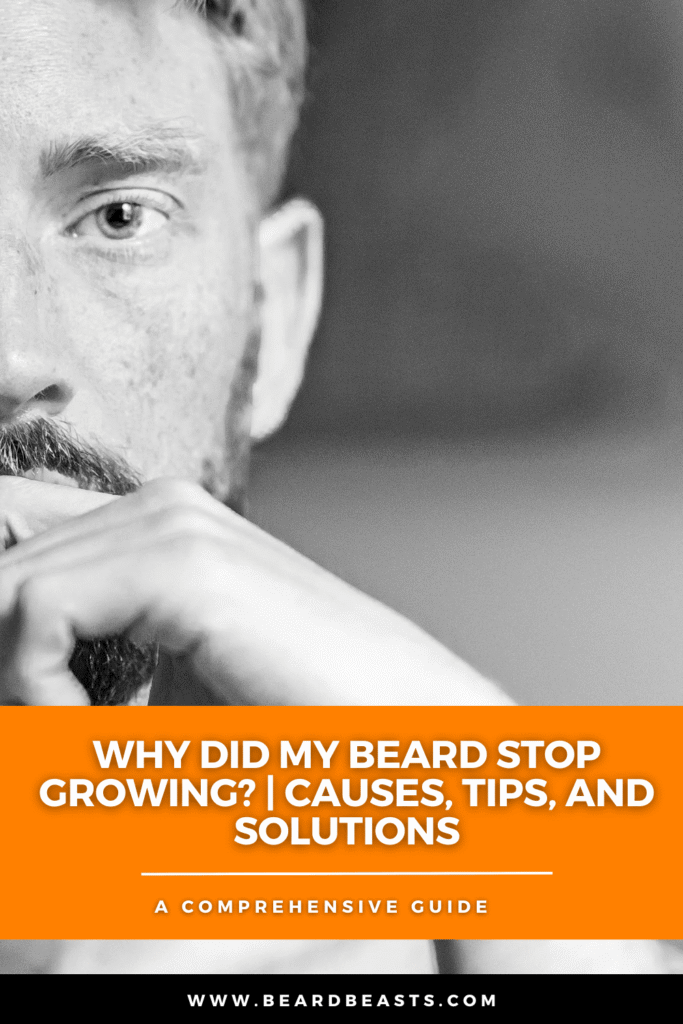
Conclusion
Understanding why your beard may have stopped growing involves exploring a variety of factors, from genetics and hormones to lifestyle and grooming habits. By addressing the potential reasons behind your beard’s growth patterns, you can take actionable steps to promote a healthier, fuller beard.
Key Takeaways:
- Hormonal Imbalances: Testosterone and DHT play crucial roles in beard growth.
- Age and Genetics: Your genetic makeup and age significantly influence your beard’s development.
- Nutrition and Health: A balanced diet and overall good health are essential for optimal beard growth.
- Grooming and Care: Regular grooming and using the right products can support and enhance your beard’s growth.
- External and Environmental Factors: Pollution, weather, and skincare products can impact your beard.
- Stress and Sleep: Managing stress and ensuring adequate sleep are vital for maintaining healthy beard growth.
- Health Conditions: Conditions like alopecia barbae, thyroid disorders, and autoimmune diseases can affect beard growth.
Remember, patience and consistency are key. Beard growth is a unique journey for every individual, and it can take time to see significant changes. By understanding the underlying reasons and adopting healthy habits, you can improve the chances of achieving the beard you desire.
If you’ve been asking, why did my beard stop growing? consider all the factors discussed in this article. Evaluate your lifestyle, make necessary adjustments, and don’t hesitate to seek professional advice if needed. With the right approach, you’ll be well on your way to sporting a healthy, impressive beard.
Final Tip: Stay consistent with your beard care routine and give your beard the time and care it needs to grow to its fullest potential. Happy growing!

